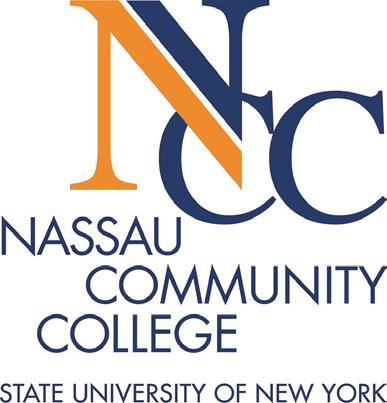






























olloy, where you’ll become who you were always meant to be.
“We invest in our students’ success, and we prepare them to succeed. Molloy students are committed to a value system that stresses a strong work ethic, resiliency, professionalism, service, and leadership,”
- Dr. James Lentini President, Molloy College“At Molloy University, we provide an education that leads to success in areas that include the health professions, arts and sciences, education, and business, rooted in a liberal arts to develop critical thinkers who are prepared for the future,” said President James Lentini. “This is why they graduate and find success individually and professionally. Inspired by our Catholic, Dominican tradition, we welcome a diverse community of students and reach beyond the classroom to educate the entire person.”
A small student-to-faculty ratio (10:1) means that students are more than a number to our professors, who go above and beyond serving as mentors to students. Molloy makes it easy to earn a degree, offering flexible learning options and resources for transfer students, career changers, and veterans.
Students can earn degrees in a variety of outstanding academic programs that lead to rich and rewarding careers (including nursing, business, education, fine arts, social work, psychology, biology and computer studies). Classes are taught by an accomplished and innovative faculty who are always approachable.
Molloy also offers a variety of graduate and doctoral programs that provide the opportunity for students to further enhance their career or take a new direction while pursuing their passion. Graduate and doctoral programs include a variety of MBA options including the new business analytics track, as well as programs in clinical mental health counseling, criminal justice, music therapy, speech-language pathology, education, and nursing. We also offer professional certificates and continuing education programs.
During their time at Molloy, students have opportunities to take part in internships, experiential learning opportunities, capstone projects with real-world clients, and exciting research projects.
Molloy was recently recognized as one of Money Magazine’s 2023 “Best

Colleges” receiving a coveted 4-star rating. The Princeton Review also named Molloy one of the “Best Regional Colleges” for 2023, and the University was ranked #1 on a list of the “Safest Colleges” in New York State. Molloy was recently named one of the top 50 “Value” institutions in the country by Niche, the only Long Island university or college to earn this distinction and one of only five Catholic colleges to make this prestigious list.
In addition to being recognized as a great value, Molloy is one of the lower-priced private universities in the region, and approximately 90% of Molloy students receive some form of institutional aid. Additionally, Molloy’s strong retention and graduation rates mean that the majority of our students graduate on time.
“We provide our students with the best possible value. If you come to Molloy, you graduate with a job in your field at a salary that’s significantly higher than average.”
- Dr. James Lentini President, Molloy CollegeOne of the many strengths of Molloy is its proximity to New York City. Nestled in the Long Island suburbs just a short ride from Manhattan, Molloy takes advantage of the NYC metro region to provide its students with the highest quality internships and clinical placements. The largest metropolitan region in the country, the NYC metro area is a world leader in healthcare, business and finance, education, criminal justice, performing
arts, and much, much more.
In addition to our Nassau County location, we have satellite campuses in Manhattan and in Suffolk County. We recently launched our ‘Communiversity’ project, developing strong relationships with the local community allowing students and their families to feel even more connected. Many of our over 28,000 alumni work and live in the tri-state area offering Molloy students a strong network of contacts in their professions.
We know that you are serious about your education, but not all learning takes place in the classroom. With more than 50 clubs/student associations, evening and weekend activities and trips, a 550-seat theatre, exciting dining options, extensive service opportunities and popular study and meeting areas, Molloy gives you the opportunity to enjoy yourself and make new friends. Whatever your interest, Molloy has something for you! Our international education program offers opportunities to travel during a school break or spend an entire semester abroad. Our student trips include such destinations as Spain, Italy, Ireland and Tanzania. Additionally, Molloy
competes in NCAA Division II Athletics, and has an array of club sports teams. Molloy recently added a sprint football team. The only program in the region, the inaugural season begins in fall of 2024.
Are you interested in living on campus? Molloy’s three residence halls house approximately 350 students and provide energy for a campus already buzzing with activity. Living with roommates, meeting new people, and learning to live on your own will help you succeed in and out of the classroom. Being a campus resident puts everything the University has to offer right outside your door.
Don’t take our word for it. Visit our campus and see for yourself all the wonderful opportunities Molloy has to offer.
At Molloy University, you’ll think about your future in a whole new way, and find the New U!
Visit molloy.edu to learn more or to schedule an in-person tour.


Open House: April 14
Start with a campus tour to help put your plans into focus
College visits are probably the most fun part of the college application process. When it comes to researching potential schools, there’s no better substitute for figuring out if a campus will feel like home.
These thumbnail experiences of college life are valuable for many reasons; they allow for a brief window into your child’s possible future and expose them to the many criteria ultimately involved in the final school selection. These visits allow them to feel the campus culture and interact with potential peers, professors and administrators. For both you and your student to get the most out of these visits, be sure to plan ahead and build an itinerary that touches on the key aspects of college life.
What this really means is be sure your student is engaged and is the one responsible for making all the arrangements and phone calls.
Do your homework
This is ultimately about finding where your student feels comfortable and can see themselves socially, as well as which institution offers the academic challenge they need. In addition, it helps you discover what kind of environment they want to call home for the next four years.
Taking the college video tour ahead of time can lead to some inquisitive questions and a general knowledge of the campus.
An important element in the best-fit college search is also tuition costs: No. 1 rule don’t visit a college you can’t afford!
Have your student research non-academic variables at the college along with the local area. The regional culture and surroundings of small towns vs. city campuses appeal to different kids. Urban, Northeastern universities with their ivy-laden facades, rolling hills and boxy skylines stand apart from the expertly-manicures, Romanesque institutions that dot the south or the sunny, ocean-side campuses along the coasts. These details will lend insight as you start to narrow the vast array of college choices.
Visit when school is in session
Most experts agree that the best time to visit is when class is in session and students fill the campus. If you’ve taken a summer college tour, consider circling back for another trip during the academic year chances are with a new tour guide, a different season and the ‘feel’ of the campus with bustling students, it will help move that college up or down the top 10.
As you navigate campus, stay plugged

into your surroundings. Observe the students and watch their interactions. Look at what they are wearing. Often, wardrobe choices can tell you a lot about the culture. For instance, if you see an overwhelming number of students wearing fraternity and sorority tees, you’ll know Greek life is important.
Keep an open mind
During your visit, everyone from tour guides to faculty will offer their perspectives on the institution. As you go through the day, jot down these thoughts It will help your student remember the positive and negative.
When you feel the doubt rising, check in with your child to see how they feel: Again, you must remember that it’s about where they are most comfortable.
Once you’ve got a strong grasp on the student culture, try to envision your child mixed in amongst the masses. Will they fit in? Finding peers that your student can immediately relate to will make the transition better for both of you.
Meet with the department head or faculty
Speaking with a faculty member of your student’s major or possible major might help pinpoint your child’s interests. Perusing the science lab, checking out the theater and the stadium will all add to the criteria needed to make an educated college selection. Plus, displaying some well-informed curiosity never hurts.
Schedule some time to meet with the appropriate staff member.
Understand the reason
These college visit strategies are an outline of ideas as you and your child begin the college search. It is a roller-coaster process as your student struggles with trying to define themselves and their future. Have patience and offer (sometimes quiet) support.

With over 50 undergraduate degree programs, Molloy University combines academic excellence and leadership with personal mentoring. Molloy’s programs in healthcare, education, business and arts and sciences will lead you to an exciting career.
OPEN HOUSE
Sunday, April 14 at 1 PM
Here, you’ll think about your future in a whole new way. molloy.edu

Nassau Community College, a campus of the State University of New York, offers more than 80 associate degrees, certificates, and vocational training taught by distinguished faculty. With a commitment to comprehensive personalized education, the college provides small classes, flexible course schedules, and affordable tuition.
The Hometown College Experience: Situated on 225 acres in historic Garden City, Nassau is home to 17,000 fulland part-time students, more than 800 instructional faculty, and expert academic and career advisors. Our safe and close-knit campus community thrives with more than 80 student clubs and organizations ranging from the Wall Street Club and the Student Organization of Latinos to the NCC Outing Club, which takes advantage of the natural resources of Long Island.
New Academic Programs: NCC continues to meet the growing demands of the labor force through associ -
ate degrees in Culinary Arts, Cybersecurity, Entrepreneurship, E-Sports Marketing, Healthcare Administration, Medical Assistant, and Sport Marketing.
A Popular Destination for Transfer Students: Students wishing to earn general education credits at Nassau as part of their goal to pursue a bachelor’s degree will receive excellent transfer advisement and benefit from Nassau’s partnerships with four-year universities.
Affordability: Named a best community college in New York State by edSmart, Nassau is recognized for educational quality and economic value. NCC’s Financial Aid professionals connect students with funding opportunities to help offset tuition costs and other expenses. In fact, nearly 49% of students attend Nassau tuition free after aid.
Nationally Ranked Athletics: Cheer on the Nassau Lions! NCC’s 28 intercollegiate sports teams compete in the National
Junior College Athletic Association. The college is home to championship lacrosse, football, wrestling and cheerleading teams. Our alumni are among the ranks of professional athletes competing in the NFL and NBA.
Arts and Culture: Nassau’s campus radio station, WHPC 90.3 FM streams award-winning programming nationally, and provides students with unique internship opportunities. Plaza Art Gallery exhibitions and theater and music performances complement a large array of arts and entertainment programs offered to students and the surrounding community.
Diversity and Equity: At Nassau we pride ourselves on making a quality education accessible to everyone. We recently opened the Minority/Women-Owned Business Enterprise (MWBE) Center for Excellence in Entrepreneurship to help current and future small business owners succeed as entrepreneurs.
A Network of Success: Nassau Community College’s alumni network is over 163,000 strong with graduates finding success as CEOs, medical doctors, actors, professional athletes, award-winning teachers, and more. Many notable Nassau alumni were the first in their families to earn a college degree, including our current Chief Administrative Officer, Dr. Maria P. Conzatti, Class of 1986.
Join the ever-growing ranks of those who consider Nassau
Community College their home for success. Apply now at ncc.edu/admissions or call 516-572-7345
“I chose Nassau because I wanted to attend a reputable college close to home. My experience has been great. I have been part of amazing productions, worked closely with professional musical directors, and developed skills that will advance my future career in musical theater.”

Jessica Nuñez of Wantagh is an acting major at NCC. In April, she will be one of one of eight students from across the country competing for the national title at the Kennedy Center American College Theater Festival in Washington, D.C.











Nassau Community College offers a full college experience with 28 nationally ranked athletic teams, 80+ student clubs, and flexible routes to a college degree.









RSVP today at ncc.edu/admissions/ infosession.shtml NASSAU














Thursday, April 25, 2024 at 10 a.m. and 2 p.m. via Zoom






Our student-athletes score big with academic scholarships and top-notch coaching. Many transfer to distinguished four-year universities and launch careers in the professional sports and entertainment industry. One Education Drive, Garden City, New York 11530 516-572-7345 | ncc.edu The choice.













If you want to make a better college search list, don’t limit your potential list of colleges to just schools you have heard of. There are close to 4,000 U.S. colleges and universities; there is no reason to start off with a short list of five institutions. Having a larger list of colleges opens up opportunities you haven’t even considered at prices that you can afford without incurring massive debt.
Now your college search list is not the same thing as your college application list where five schools may be a very reasonable number. The college search list should contain at least 20 schools, more if you have the time to research them. A good search list will include colleges that you haven’t considered or heard of before you started creating the search list.
Many possibilities
This is the time to be open to new ideas. Pick or imagine your ideal school in every aspect. Go all out and assume you have a full scholarship to attend.
Next, start playing “what if” with the characteristics of this dream school. Would you go if it were 500 miles away? What if it is was significantly smaller than you wanted? Or maybe it doesn’t have the big time college sports you’re looking for? If just one of these factors was missing, would you still attend if you had a full scholarship?
If you would still consider going than you need to realize that these “requirements” you have already created are probably limiting some very good schools from your list. You can start expanding your list by taking one college you’re interested in and changing or removing a limiting characteristic to find similar schools.
For example, say you are interested in big universities with finance majors in the northeast. Start by changing finance to business or economics in general. What schools does that add to your list? Or maybe keep the finance part but add the mid-west or change big to medium-sized.
Ultimately, these new schools may
not stay on your list. However, it’s more likely that you will discover possibilities that you hadn’t considered and revise the criteria for your list. Finance may still be critical but you might decide that there can be mitigating circumstances as far as size goes.
Here are things you can do to expand your college search list.
Ignore geography. This means both location, such as state, and place, such as rural. There are a lot of preconceived notions about colleges based on geography alone. Ultimately, geography may be an important consideration for narrowing your list of colleges. But by keeping geography out of the equation to begin with, you may discover other factors that more than make up for being in a place you had thought was less than desirable.
Don’t use rankings to keep colleges off your list. Rankings are arbitrary, one person’s top ten may not make it to another person’s top 50. If and when you do use rankings to narrow your college search list, be sure to understand the basis for the rankings.
Look at net cost rather than tuition. Few people pay full price. You can get an even better idea of net cost by income level by using the college navigator on college search sites. Make sure you have already calculated an estimated EFC and use the colleges’ net price calculators.
Don’t use college size in making your preliminary list. This is another area where many students have assumptions that they haven’t really tested. Also, it’s simply a matter of numbers since there are just a lot more smaller colleges than bigger ones. Begin by looking at the percentage of classes by class size or the number or type of classes available for specific majors.
Above photo: With so many facets to the college application process, it can be difficult for students and their families to even know where or how to begin. A good starting point — and one of the most important pieces of the application process — is formulating a balanced college list.

The impact of the high school course load on your student’s future college plans can be challenging. There’s not always a clear “right choice,” but whether your kids are just entering ninth grade or are gearing up to start their college applications, there are plenty of best practices to keep in mind as you navigate the questions that arise throughout the school year.
Many parents and students see high school as a steppingstone to college. Take a moment to ask yourself why you take advanced courses, volunteer, or play a sport. If your answer is “to get into a good college,” you’re not alone — most students have a similar response. With this mindset, it’s easy to see how a rat race develops.
Students want to have the best chance of admission, and, for many students, that seems to mean taking every advanced course possible and filling every hour with activities, regardless of whether they can handle the workload or catch a wink of sleep in between.
Some students thrive in this competitive environment, but others don’t and need to find their happy medium. If you’re asking yourself what your student should do, first consider their goals beyond just getting into a good college. Do they hope to one day work in animation or design rockets? Do they want to own a small business or even just figure out what academically or professionally interests them?
When you focus on their goals, you can help your children navigate the resources around them without getting caught up in a one-size-fits-all solution.
No matter what your student’s goals happen to be, you can help them choose suitable extracurricular activities and academic classes by remembering a few things.
Focus on their strengths. We all want to be good at everything we do, but the reality is that few of us are. Some students are great at uncovering the mysteries of mathematics while others gravitate towards music, the written word, or aerial gymnastics.
No matter their strengths, make sure to encourage your student to develop them. They’ll be more engaged when they can focus on their specific interests. This doesn’t mean they get to skip out on math just because they don’t like it, but if they don’t take to algebra, you can anticipate that they’ll probably never
love calculus quite as much as rock climbing or learning about Greek mythology.
Your student will benefit from learning a variety of subjects in high school, and they might grow from a slight nudge towards activities that push them out of their comfort zone, but don’t expect the same level of enthusiasm or achievement across the board, and leave plenty of space for them to pursue their interests (even if you don’t always understand them).
Slowly, but steadily, build. Challenges are a good thing. An overwhelmed, sleep-deprived student is not. Your student can strike a balance by slowly building the rigor and intensity of their academics and activities. To increase academic rigor at a steady (and manageable) pace, your student can first take advanced classes that align with their academic strengths and then, if they can handle it, add advanced classes that will require more effort.
When it comes to activities, encourage your child to take a similar approach. As they figure out what activities matter most to them, help them find ways to take on more responsibility, whether that’s by taking on leadership roles or by planning events and activities. If their schedule gets too packed, remind them that there’s no shame in stepping back from an activity that’s run its course in order to shift their focus elsewhere.
Don’t compare. As long as there are other students around, it will be easy to make comparisons between them and your child. Resist the urge to do so and instead focus on helping your student build their strengths. Remember that no two students are the same and that comparisons simply build up anxiety and an unhealthy sense of competition.
Comparisons can also keep your student from being able to shine in their own way. Even if every “successful” student at your child’s high school is in speech and debate, joining that club won’t make your student happy or successful if they can’t stand being in the limelight and would rather paint extravagant (and probably amazing) sets for the theater department.
Courtesy Collegewise.com
Above photo: For those in high school and thinking about college — and you should be — you should know that the courses you take now matter. That’s because admission officers want to see a solid foundation of learning that you can build on in college.

At Hofstra University, you will learn and grow on a campus that offers engaging classes, exceptional facilities, dedicated faculty, and a supportive network of peers and mentors. Discover your strengths through career-enhancing experiences, elevated by Hofstra’s 175 undergraduate programs, combining the tight-knit community of a small college with the international reach, reputation, and resources of a large university.
Hofstra’s proximity to Long Island and New York City ensures that students gain access to internships and co-op positions with leading companies and organizations in nearly every industry. In fact, 92% of Hofstra undergraduate degree recipients report being employed or in graduate school within a year of graduation. Classes are small, with a 13:1 student-faculty ratio, and Hofstra professors are leading scholars who are dedicated to teaching.
Since its founding in 1935, Hofstra has grown from one central house to 117 buildings on 244 acres. Hofstra’s new Science & Innovation Center provides modern academic spaces and labs for students in the Fred DeMatteis School of Engineering and Applied Science and the Hofstra Northwell School of Nursing and
Physician Assistant Studies.
Hofstra’s longstanding partnership with Northwell Health – New York state’s largest healthcare system and private employer – allows the School of Health Professions and Human Services and the Hofstra Northwell School of Nursing and Physician Assistant Studies to offer internships and guaranteed clinical placements at Northwell facilities.
At Hofstra’s School of Education, distinguished faculty prepare the next generation of education professionals through collaborative learning that includes teacher education, literacy studies, and special education. Meanwhile, future business leaders are encouraged to enroll at Hofstra’s Frank G. Zarb School of business, with programs that are nationally recognized by The Princeton Review, Poets & Quants, and other national ranking organizations.
The film program at The Lawrence Herbert School of Communication was named among the best in the country by The Hollywood Reporter and Variety. For those looking to explore their creative passions, the School of Humanities, Fine and Performing arts as well as Hofstra

College of Liberal Arts and Sciences provide a range of options while helping you discover new talents.
Regardless of your major, Hofstra’s abundant resources and learning opportunities will help you thrive academically, personally, and professionally.
Among full-time, first-year students who started at Hofstra in fall 2023, 100% determined to have financial need were
awarded some type of aid. Thirty-two percent were in the top 10% of their high school class, and 56% self-identified as people of color – a new high for the University.
Experience outstanding academic programs, personal attention, a vibrant campus life with more than 200 clubs and organizations, 21 NCAA Division I athletic teams, and, most importantly, a community that cares about you and your dreams. Visit hofstra.edu/visit to learn more.

Sunday, May 5, 2024
Campus Tour times: 9 a.m., 10:30 a.m., Noon, 1:30 p.m.
Hofstra University is a community designed with your future in mind.
During this year’s Spring Open House, speak with Hofstra’s world-class faculty and learn about its 175 undergraduate programs, various student services, clubs, organizations, and NCAA Division I athletics, all while touring a stunning 244-arce campus filled with cutting-edge facilities and research labs, and residence halls that will make you feel at home.
In-person and virtual tours are available. For event details and to RSVP, please visit hofstra.edu/visit